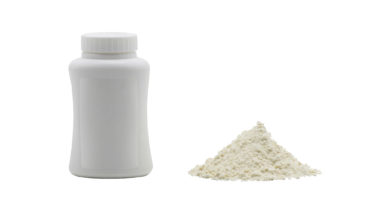Top Class Actions’s website and social media posts use affiliate links. If you make a purchase using such links, we may receive a commission, but it will not result in any additional charges to you. Please review our Affiliate Link Disclosure for more information.
Although the exact root cause of non-Hodgkin’s lymphoma is not known, there are several different risk factors that can increase a person’s chances of developing the disease. Recently, a link between an ingredient in the popular weed killer Roundup, glyphosate and cancer has been reported.
Other risk factors for developing non-Hodgkin’s lymphoma include obesity, race, gender, and age. However, exposure to some types of chemicals, herbicides, pesticides, fertilizers, and insecticides, might increase a person’s chances of developing non-Hodgkin’s lymphoma as well.
Some people who do not have any of the suspected risk factors for non-Hodgkin’s lymphoma might still develop it. Anyone who has conditions that impact the immune system or have been treated for the conditions or related diseases could be at risk of non-Hodgkin’s lymphoma.
The longer a person goes without getting medical attention for the suspected lymphoma, the worse the cancer can be. Since many people are not familiar with the risk factors for this cancer, they might not notice the symptoms that indicate developing cancer.
The disorders and medical conditions often connected to non-Hodgkin’s lymphoma often include autoimmune diseases, viruses and infections such as HIV-AIDS, inherited immune disorders, and treatments with TNF inhibitors, radiation therapy or chemotherapy or use of immunosuppressant drugs.
While research into those connections is still ongoing, a growing number of people allege that there is a strong connection between glyphosate and cancer.
In particular, the Monsanto company has been targeted in numerous lawsuits for allegedly knowing about the connection between glyphosate and cancer and in failing to warn the public. The use of the popular weed killer, Roundup, has been named in numerous lawsuits by patients who have been diagnosed with non-Hodgkin’s lymphoma.
These plaintiffs allege that the regular and consistent use of the Roundup weed killer caused them to develop cancer. According to CNN, a new study has identified that glyphosate raises the cancer risk for those who have been exposed to it by as much as 41 percent. Whether or not glyphosate has carcinogenic and dangerous properties that could affect human health, has been up for debate in a number of different studies.
Monsanto continues to allege that glyphosate offers efficient and safe weed control in their formulations. However, in 2015, the World Health Organization categorized glyphosate as probably carcinogenic to humans.
Glyphosate is the active ingredient inside Monsanto’s Roundup weed killer. According to Scientific American, Roundup is the most popularly used herbicide in the United States and the EPA says that approximately 100 million pounds are applied to lawns and farms across the United States every single year.
Some research has found that the inert ingredients in Roundup amplify the toxic impact on human cells at concentrations that were much more diluted than those used on lawns and farms.
Those people who have been diagnosed with non-Hodgkin lymphoma as a result of being exposed to Roundup in their personal homes or in their workplace, argue that they could not have known about the dangers and that it is the responsibility of those Roundup makers to notify the public of these possibilities.
Despite the World Health Organization’s International Association for Research on Cancer (IARC) reviewing numerous global studies over a year before classifying Roundup’s main ingredient as a probably carcinogenic, the Bayer Co.—which bought Monsanto–manages to claim there are 800 scientific studies with results supporting the non-cancerous properties of glyphosate that have been submitted to various regulatory bodies in the U.S. and European Markets.
The Environmental Protection Agency (EPA) Weighs In
As part of Bayer’s defense of their best-selling product—particularly amidst the onslaught of numerous lawsuits claiming liability for non-Hodgkin’s lymphoma and other cancers—the EPA’s opinion is oft presented. As indicated by the EPA website, its conclusions run contrary to that of IARC’s.
The federal regulatory agency says glyphosate has been a registered pesticide in the U.S. since 1974. At the time of its first approval, it was reviewed and tested, but safety is not a stagnant pursuit. According to them, each product with potential environmental impact is retested and reevaluated on a 15-year cycle.
In the spring of this year—April 2019—the EPA stood behind its previous stance with the release of its Glyphosate Proposed Interim Decision. This stance is that when glyphosate products are used according to instructions presented on the care and use label, there are no carcinogenic concerns to human beings.
Nevertheless, Bayer’s Roundup maintains its position as one of the top selling herbicides globally.
If you or a loved one developed cancer after using Roundup as a farm worker or home gardener, you may have a legal claim. Legal migrant farm workers may also seek help. Learn more by filling out the form on this page for a FREE case evaluation.
ATTORNEY ADVERTISING
Top Class Actions is a Proud Member of the American Bar Association
LEGAL INFORMATION IS NOT LEGAL ADVICE
Top Class Actions Legal Statement
©2008 – 2024 Top Class Actions® LLC
Various Trademarks held by their respective owners
This website is not intended for viewing or usage by European Union citizens.
Get Help – It’s Free
Join a Free Roundup Cancer Class Action Lawsuit Investigation
For the most up-to-date information on this case, click here.













